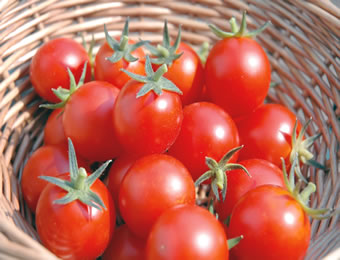The National Horticultural Research Institute (NIHORT) has engaged youths and women in the Federal Capital Territory (FCT) on value addition for tomato and Telfairia (ugu).
The training is expected to expose the trainees on how to grow the crops, and add value to the crops after harvest, thereby making the product marketable.
The Executive Director of NIHORT, Dr Abayomi Olaniyan, while speaking at the training workshop recently in Abuja, said the training would cover important aspect of the commodities value chains such as nursery practices in tomato and telfairia production practices.
He said the training would also touch on the value addition of the two crops, economics of production, marketing and significance of record keeping for good business management.
“The training is important, considering the importance of the commodities in daily diet and economic empowerment.
“Tomato is undoubtedly one of the most important vegetables grown in Nigeria. It is essential for cooking, a valuable raw material in processed products such as juice, puree, paste, ketchup/sauce, dry slices, powder and canned or bottled whole.
“It has high economic and nutritional importance. It is a profitable horticultural crop that provides income to farmers and agents involved in the production and marketing”, he said.
He explained that tomato nursery practice is one of the major constraints in tomato production, adding that it is important for future development of the commodity value chain.
Dr Olutola Oyedele, the training coordinator said the training was targeted at making the trainees practice what they learnt from the comfort of their homes.
She said the trainees can key into any segment of the value chain from the nursery to the production and value addition.
“We are bringing in women so that they can do this in the comfort of their homes and make money, and also the unemployed youth, we are also interested in impacting this knowledge and skills into them so that rather than look for white collar jobs that are not really available, they can key into different segments of the value chain right from the nursery, all through to the production, value addition and other parts of the value chain for tomato and Telfairia”, she noted.
She further said that the training is a form of economic empowerment. “According to her, at the end of this training program, the trainees would be empowered to start up at their own production.
“The training is in series. It started last year when we trained some people in Abuja on mushroom and ginger production, we are back again this time to train on tomato and Telfairia.”






